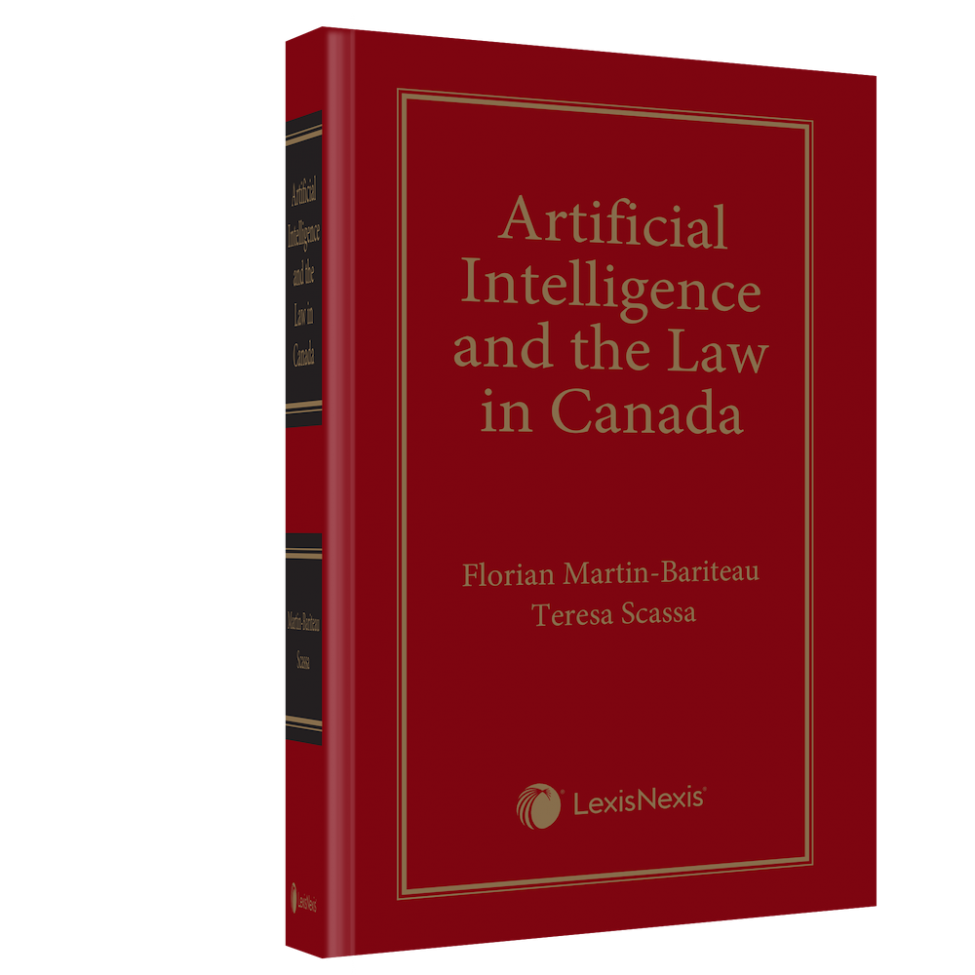Florian Martin-Bariteau and Teresa Scassa - law professors at the University of Ottawa - highlight the structural transformation of our society through the contribution of artificial intelligence and question how existing legal frameworks can or should adapt to this new technology. The book will be available in early 2021 in print, electronic and QuickLaw versions. The content will be freely available in early 2022.
Bringing together some of the leading Canadian scholars in the field, Artificial Intelligence and the Law in Canada captures the diversity of law and policy challenges facing Canada when it comes to AI. It offers insight into how existing laws might apply, what gaps are present, and what issues law reform should address. Because AI creates significant new challenges for law and public policy, each chapter begins with a summary of key challenges and issues from the perspective of the author, and ends with an assessment of risks and opportunities, and key gaps in the law.
Table of Contents
About the Authors
Acknowledgements
Table of Contents
Foreword
Madam Justice Rosalie Abella
Introduction
- AI and Copyright
Carys J.Craig - AI and Patents and Trade Secrets
Gregory Hagen - AI and Contract Law
Florian Martin-Bariteau & Marina Pavlović - AI and Tort Law
Kristen Thomasen - AI and Data Protection Law
Teresa Scassa - AI and Competition Law
Jennifer Quaid - AI and Administrative Law
Jennifer Raso - AI and Health Law
Colleen M. Flood & Catherine Régis - AI and Human Rights Law
Vivek Krishnamurthy - AI and Technology-Facilitated Violence and Abuse
Jane Bailey, Valerie Steeves, Jacquelyn Burkell, Chandell Gosse & Suzie Dunn - AI and “Equality by Design”
Bita Amani - AI and Legal Ethics
Amy Salyzyn - AI and Judicial Decision-Making
Ignacio N. Cofone - AI and Legal Analytics
Wolfgang Alschner - AI and International Regulation
Michael Geist - AI and the Law in the EU and the US
Céline Castets-Renard

To pre-order on LexisNexis
This content has been updated on 22 January 2021 at 16 h 58 min.
